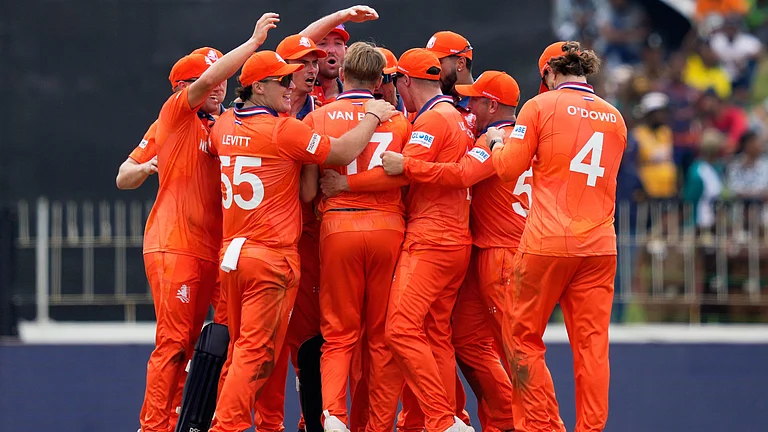And then there was his sheer intelligence. His speech to Parliament, in which he acknowledged the achievements of Indian democracy and combined respect for India's sovereignty with a forthright delineation of the differences between the two countries, was remarkable not only for its control of nuance but also for its content. In it Clinton gave to Indians what they so seldom receive-respect.
Clinton feels India has lessons to teach the world. "The first is about democracy. There are still those who deny... democracy is a universal aspiration; who say...it works only for people of a certain culture, or a certain degree of economic development. India has been proving them wrong for 52 years.... Here...is a country that shows at every election that those who possess the least cherish their vote the most."
"A second lesson India teaches is about diversity.... Around the world there is a chorus of voices who say ethnic and religious diversity is a threat; who argue that the only way to keep different people from killing one another is to keep them as far apart as possible. But India has shown us a better way.... Under trying circumstances you have shown the world how to live with difference. You have shown that tolerance and mutual respect are in many ways the keys to our common survival."
These achievements have not been readily recognised. The world media's tended to focus far more upon occasional discord, like the insurgency in Kashmir, than #on the harmony that prevails among a billion people belonging to more than two-score ethno-national groups. In the libraries of the world you'll be hard put to find a treatise on democracy that devotes a chapter to India's unique form of ethnic federalism and the way it has forged unity out of diversity. It needed someone of exceptional perceptiveness and intelligence, not to mention humility, to recognise India's singular achievement. Clinton's speech must have been carefully scripted but there can't be a shadow of doubt that the sentiments it expressed were very much his own for they were the very same ones he had expressed six years ago in preliminary remarks at a joint press conference in the White House with then PM Narasimha Rao.
Why then is the Indian intelligentsia so hesitant on accepting his appreciation of India #at face value? Why's the media virtually ignoring his remarks about Indian democracy and focusing solely on his statements about Kashmir and nuclear non-proliferation? Why are so many analysts still searching for a hidden (anti-India) agenda in his remarks about the advisability of avoiding a nuclear arms race, of holding a dialogue with Musharraf, and respecting and observing restraint on the LoC? One reason may be that as Indians have always lived within a democracy, they take its many virtues for granted and notice only its shortcomings. They are therefore unable #to step out of Indian society and compare it with others, especially in the developing and formerly socialist worlds, in order to fully appreciate their country's achievements.
What makes India unique is the fact that it is virtually the only country that's used democracy as a tool for nation-building. In all older democracies of Europe, nation-building preceded democracy by at least 200 years. And the instrument they used for nation-building was war. India has built a nation without war. Admittedly, the Congress inherited a unified country in 1947. But a territorially unified country is not necessarily a united nation. The task of accommodating the political aspirations of India's ethno-nations and weaving them into the fabric of the Indian nation in conditions of complete freedom fell to India's leaders after independence. Unfortunately, the Indian intelligentsia takes the blessings of democracy for granted and sees only its failing. That's why it automatically suspects the motives of anyone who lavishes such wholehearted praise upon it.
Another reason for mistrust is our profound lack of self-respect. Unlike other nations, Indians do not even have a common language. Its intelligentsia gets its education, reads, writes and converses in English. The educational system seems deliberately designed to rob Indians of their self respect. Indians can lay claim to not one but three classical literary and cultural traditions-those of Arabic, Persian and of course Sanskrit, but not one of these is taught in our schools and colleges. School curricula also do not contain music, dance or theatre, the other ways young people come in contact with their cultural roots. The vacuum is being filled by some of the most mediocre products of western, specifically American, culture. Thus, modern India's image of itself is being culled almost entirely from foreigners.
By coming here, praising our achievements and setting terms on which India can lay claim to a place in the hierarchy of nations, Clinton's thrown down a challenge to all Indians. Status, respect and power are all in grasp. But power brings responsibilities. It'll be elusive so long as we remain unwilling to shoulder them. That unwillingness will persist so long as Indians remain unable to believe in themselves and take pride in their achievements.























